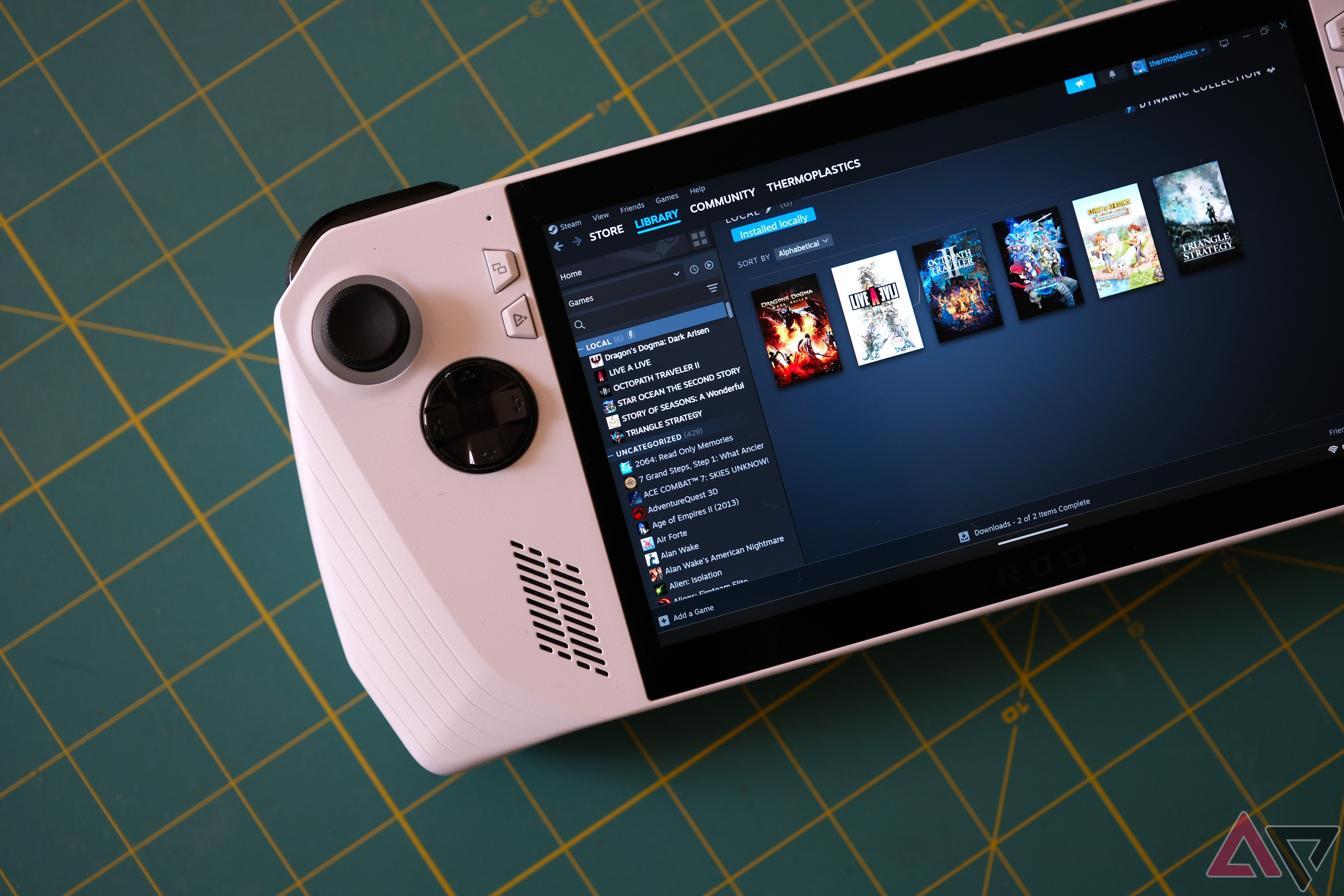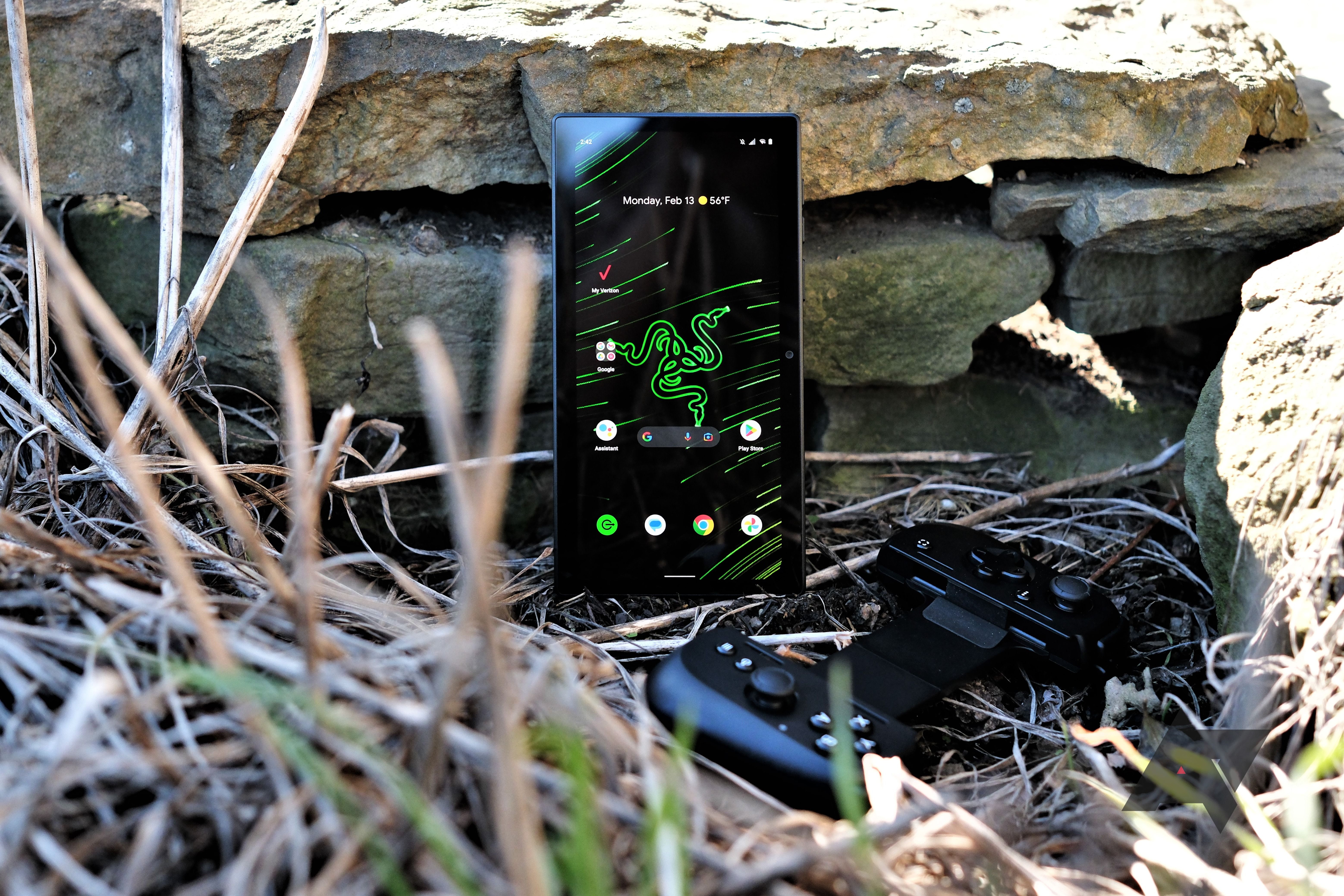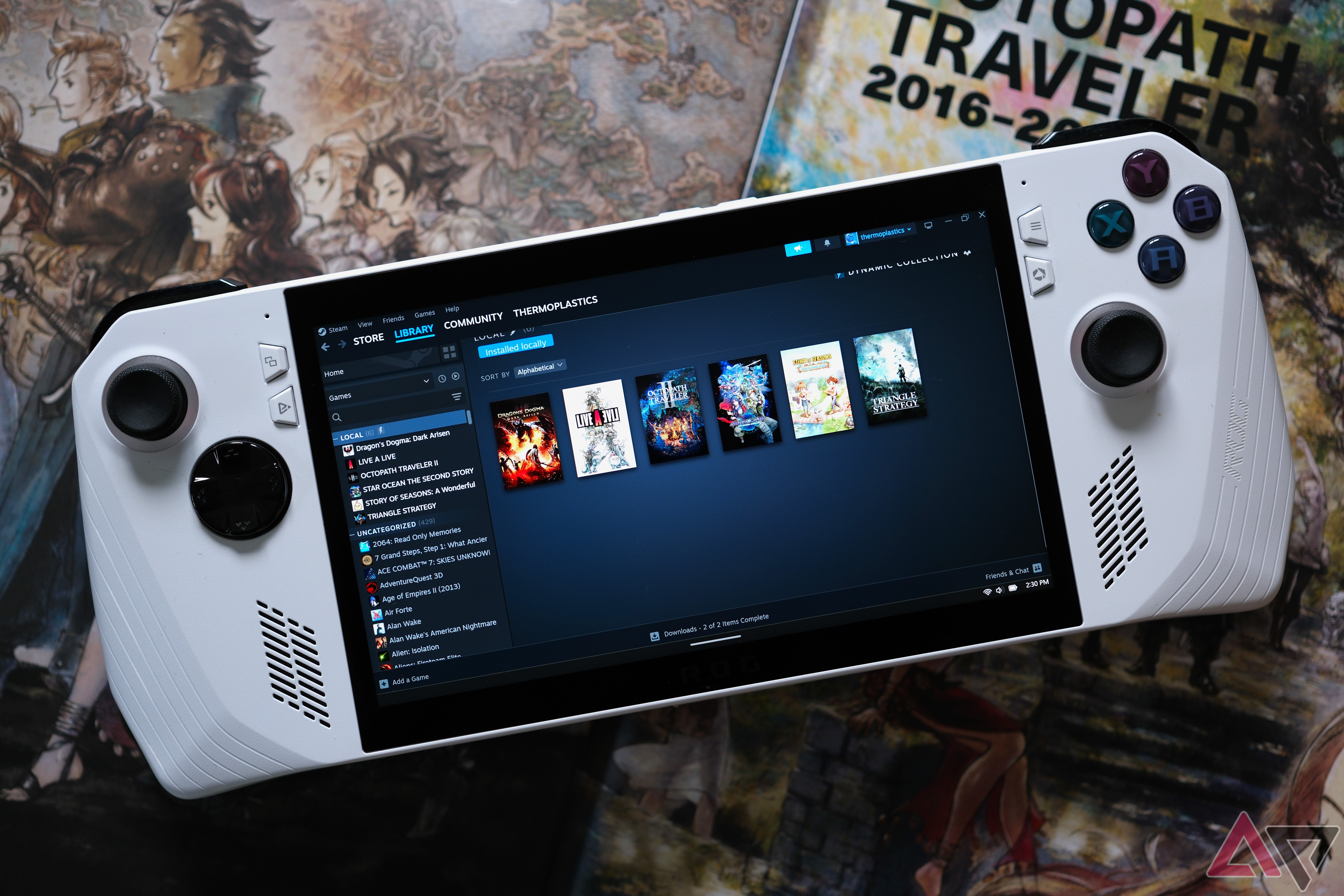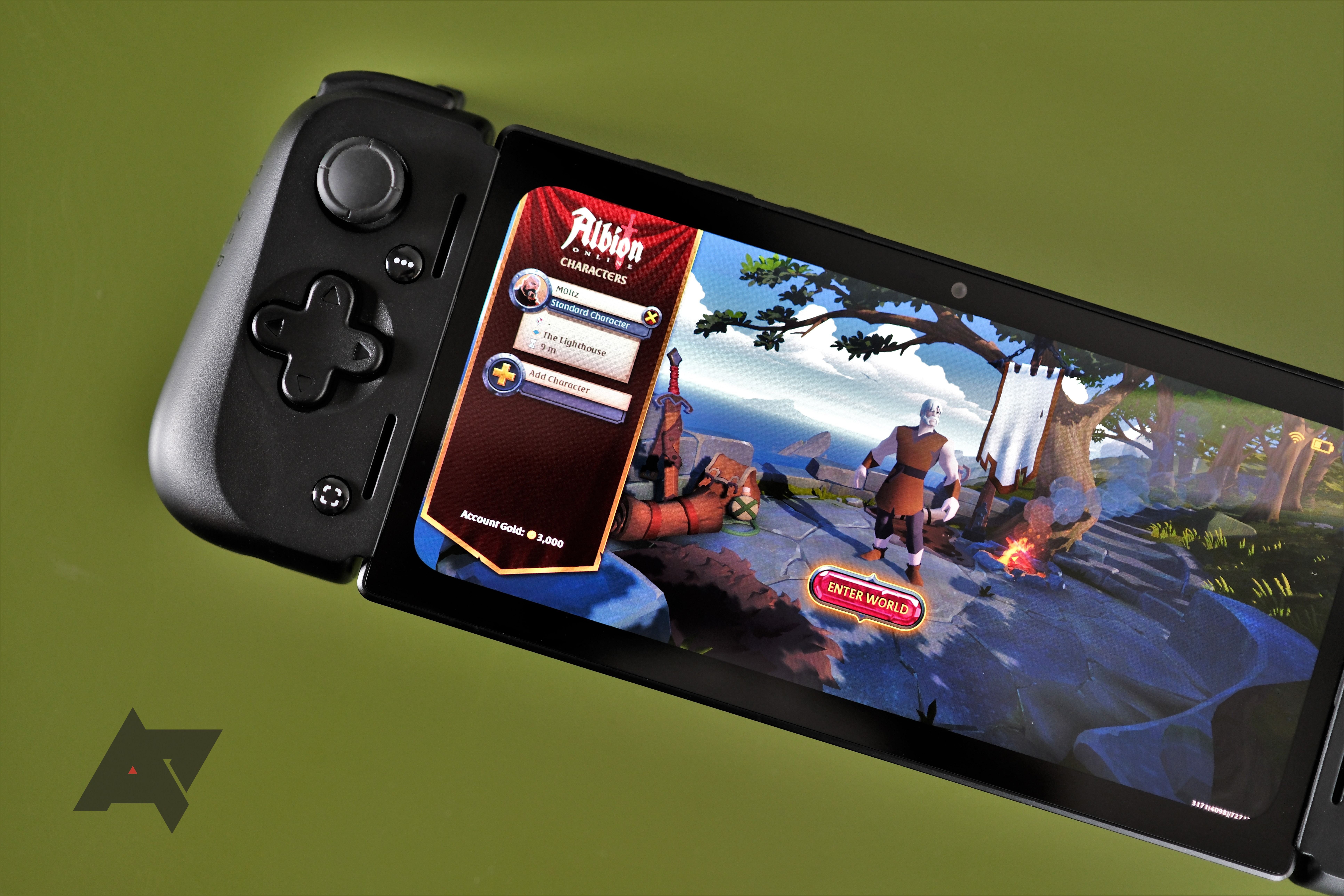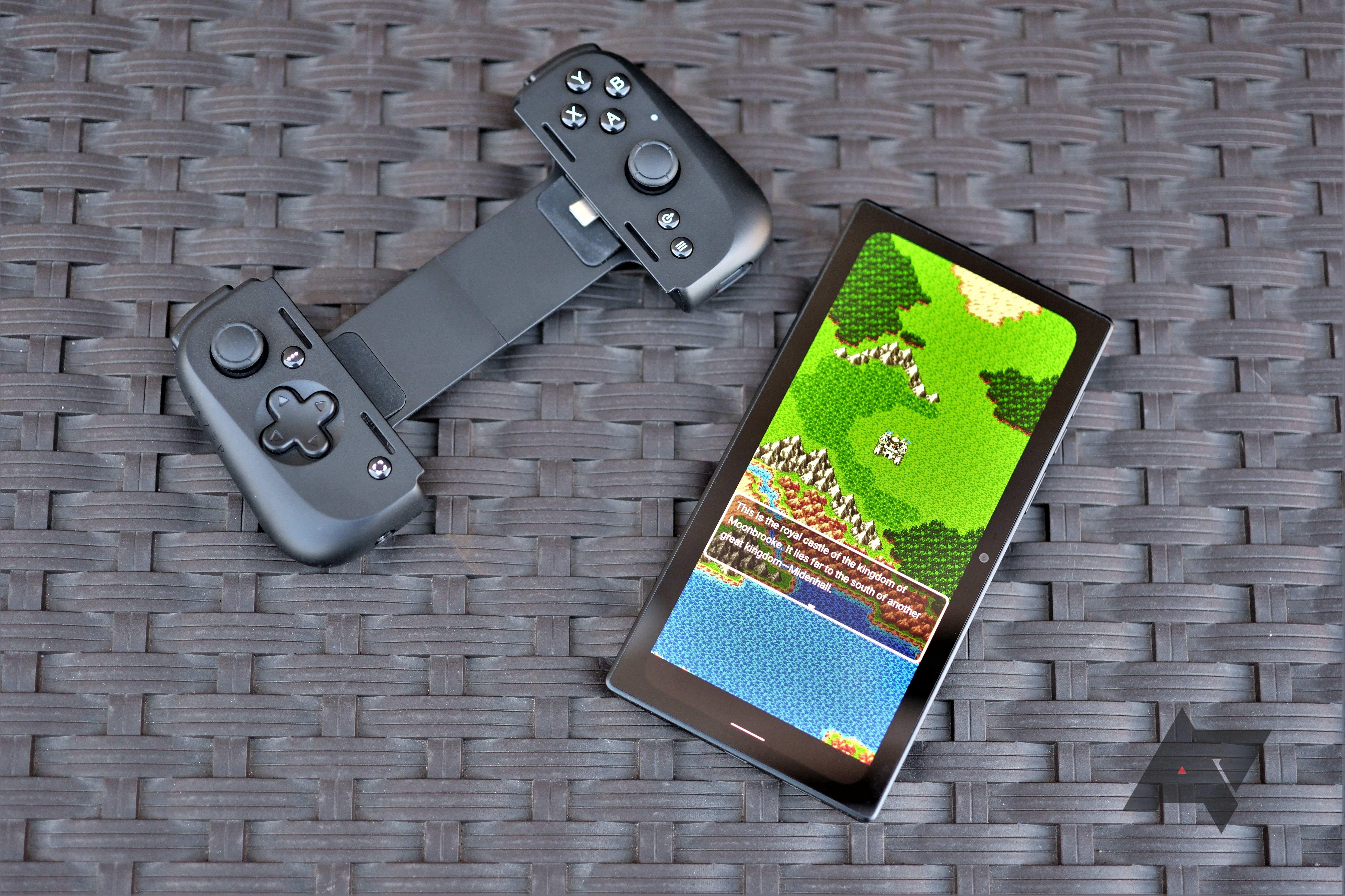-

Power-hungry performance
Asus ROG Ally
$400 $500 Save $100
The Asus ROG Ally’s AMD RDNA 3 chipset is powerful enough to run most AAA games, and the 7-inch screen can display them in stunning quality. However, its battery is inadequate to run the most demanding games for more than an hour, so keep a power bank nearby.
Pros- Good performance for the price
- Can run any Windows-compatible game
- Variable refresh rate up to 120Hz
Cons- Windows is frustrating to use on a handled
- Inadequate battery life
-
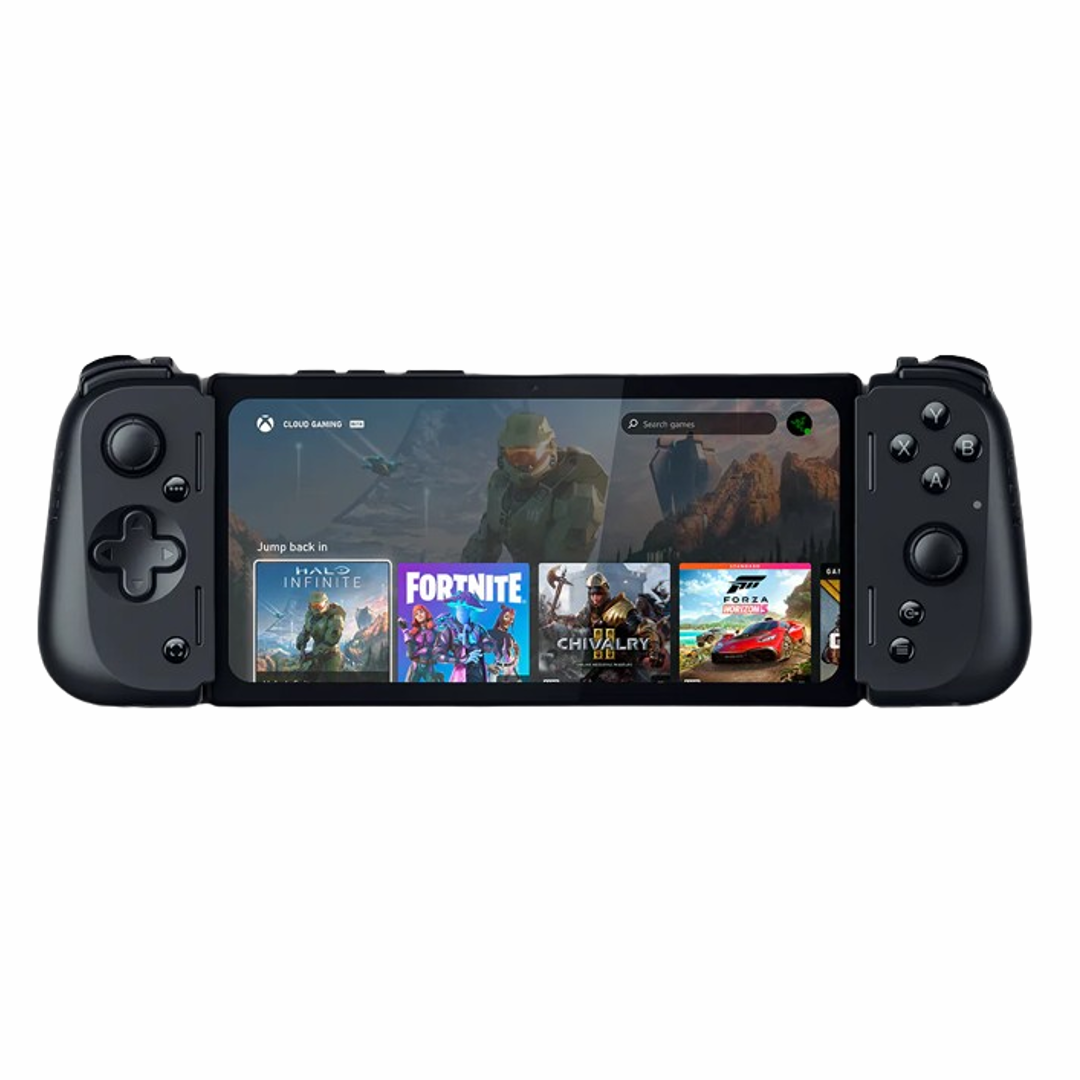
Mobile gaming power
Razer Edge
While the Razer Edge is technically just an Android tablet with removable controllers, it boasts an impressive battery life and excellent portability. It can’t run PC games on its own, but you can stream them from services like Game Pass.
Pros- Long-lasting battery
- Great performance for native Android games
Cons- No support for native PC games
- Your phone probably can do the same job better
While handheld consoles designed to run PC games are all the rage right now, there’s still a place for the Android handheld. Out of all the PC handheld consoles on the market, Asus’s ROG Ally stands out as one of the best (albeit with compromises). This powerful handheld lets you access any PC game from a portable console, and has the hardware to play most of them well.
However, sometimes you don’t need all that, which is where the Razer Edge comes in. This Android tablet is designed for gaming from the ground up, and while its library of games is smaller than most consoles’, its portability and long-lasting battery make it a better option for traveling.
So, which one is best for you? Can Razer’s jazzed-up Android tablet hold up against Asus’s handheld powerhouse?
Price, availability, and specs
The Asus ROG Ally is available worldwide through Asus’s online store or retailers like Best Buy. $500 gets you the model with the AMD Ryzen Z1, or you can choose the Ryzen Z1 Extreme processor for $700. The only difference between the two models is the processor; we’ll compare the Razer Edge with the basic Ryzen Z1 in this article.
The Razer Edge, meanwhile, costs $400 for the basic model. It’s available through Razer’s online store and some other retailers, like Newegg. However, Verizon sells an exclusive model with 5G and Wi-Fi 6E support for $600. As of June 2024, you can only buy the 5G model prepaid.
-
Asus ROG Ally Razer Edge Dimensions 280mm x 111mm x 21mm 260mm x 85mm x 11mm Playing Time 1-4 hours Up to 5 hours Brand Asus Razer Weight 608g 401g Chipset AMD Ryzen Z1 Snapdragon G3x Gen 1 RAM 16GB 6GB Storage 512GB 128GB Wireless Connectivity Bluetooth 5.2, Wi-Fi 6E Wi-Fi 6E, Bluetooth 5.2, optional 5G Headset Compatibility 3.5mm jack, Bluetooth 3.5mm jack, Bluetooth Display 7-inch 1920×1080 LCD, 120Hz 6.8-inch 2400×1080 AMOLED, 144Hz Output resolution 1080p, 4K N/A Graphics AMD RDNA 3 Snapdragon G3x Gen 1 Ports 3.5mm audio jack, USB-Type C, microSD USB-C, headphone jack, MicroSD Battery 40Whr 5,000mAh
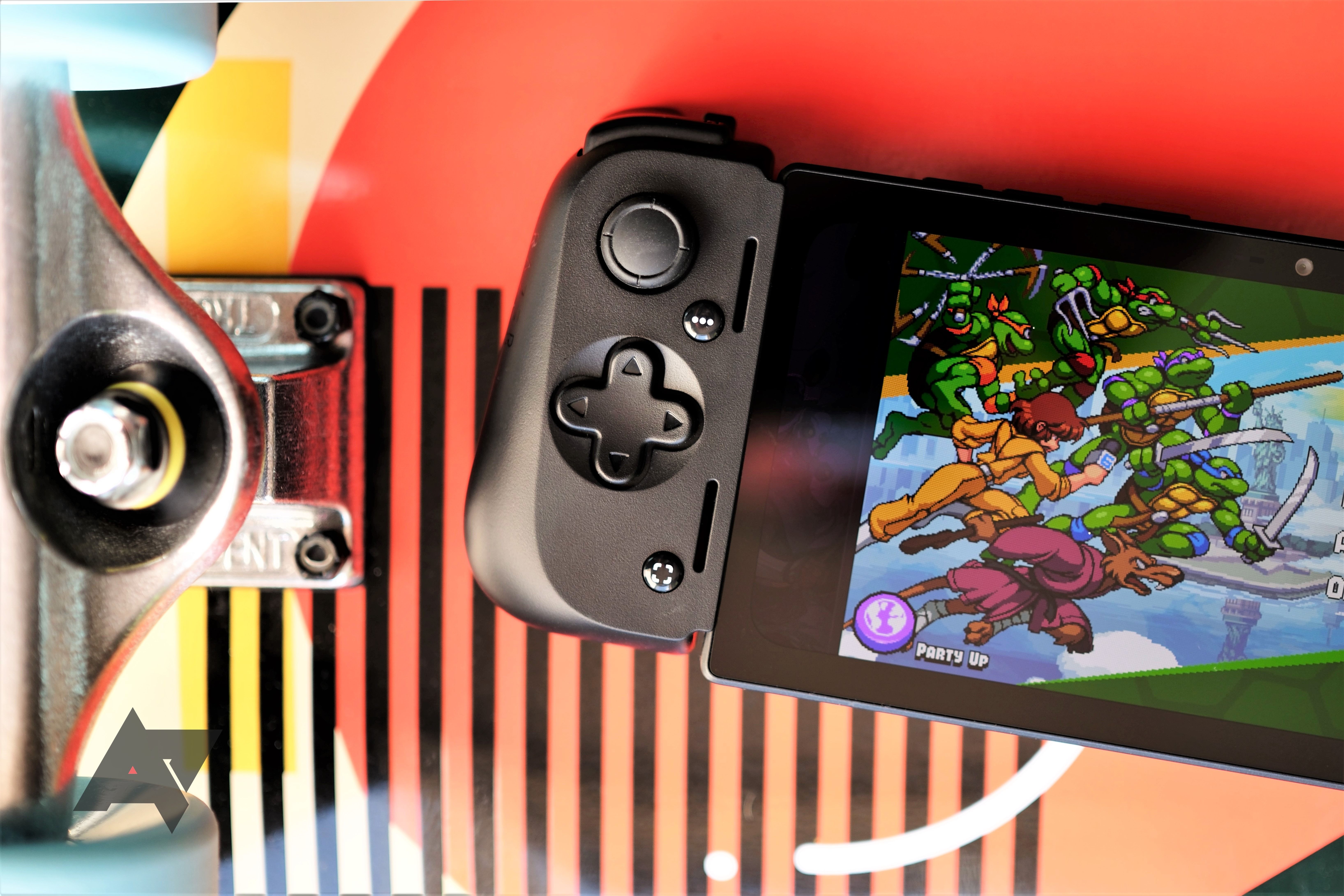
Read our review
Razer Edge review: Thanks, but I already have a phone
For a purpose-built gaming device, it’s lacking
Design
More than a size difference
The Asus ROG Ally’s button layout isn’t a significant departure from the classic Xbox button layout, with offset joysticks, a D-pad, two bumpers, and two triggers. However, there are two extra programmable triggers on the back. While the angular frame can be slightly uncomfortable, the entire package is effective, and at 608g, it’s not too heavy in the hands either.
The Razer Edge, on the other hand, is much lighter and much more comfortable. It’s smaller in all aspects and weighs two-thirds that of the ROG Ally. Its rounded controllers are easier to hold, and it has roughly the same button layout as the ROG Ally. It also has two extra buttons in the form of square buttons next to the triggers.
The big difference, though, is the Razer Edge’s detachable controllers. However, this is less exciting than it initially seems. Unlike the Lenovo Legion Go, for example, which also has detachable controllers, the Razer Edge’s screen component doesn’t have a kickstand, and the Kishi V2 controllers are powered by your phone, so they’re pretty useless detached. However, you can snap them onto most Android phones to play games there instead.
Overall, the Razer Edge is more comfortable, more portable, and technically more versatile, although this is more of a gimmick than anything. However, its smaller design means a smaller screen, which is often the deciding factor for handheld consoles.
Display
Consistency or vibrancy?
On paper, the Razer Edge’s screen seems just as good, if not better, than the Asus ROG Ally’s. It’s not much smaller (6.8-inches compared to the 7-inches on the ROG Ally), and the 144Hz AMOLED display is a significant upgrade over the ROG Ally’s 120Hz LCD.
However, the Razer Edge offers a bizarre screen ratio of 20:9, meaning you can expect black bars on all game streaming apps except for GeForce Now. This will be a common frustration as you’ll use these apps a lot (more on this later). The other problem is the rounded corners, which cut off parts of movies and games when they’re full screen.
Despite these odd design choices, it’s indisputable that the Razer Edge can display better colors and deeper blacks, all at a higher refresh rate. However, the unorthodox screen size means that if you want to avoid staring at black bars during your gaming sessions, the Asus ROG Ally is the clear better choice.
Software and performance
Completely different; there’s a clear winner here
Pick up any Android phone or tablet running Android 12 or later and install the free Razer Nexus launcher from the Play Store. Congratulations, you’ve got an exact copy of the Razer Edge’s software. It’s just Android, but with no exclusive software tricks. So you have all the pros and cons of Android, but the main con we need to consider here is game availability, where the Razer Nexus loses out heavily against the ROG Ally.
Meanwhile, the Asus ROG Ally runs Windows, so you can technically play every game compatible with Windows PCs. Whether you’re a die-hard Steam fan, play emulated games, or want to stream games, it’s all available to you. Unfortunately, using Windows is clunky and awkward on a handheld, so you’ll want to stick with Asus’s admittedly excellent Armory Crate app as much as possible.
With such different software, comparing these handhelds’ performance is hard. The Razer Edge can run every Android game and won’t struggle with most emulators. The ROG Ally is much more inconsistent, but this is mainly due to the range of games available.
Overall, while the Razer Edge offers more stable software and performance, the Asus ROG Ally can do everything it can do. While you technically miss out on some Android games, the advent of Google Play Games for PC means even this slim advantage of the Razer Edge will soon be irrelevant.
Battery life
It’s not even close
Poor battery life is a common issue among PC handheld consoles, and the Asus ROG Ally is no different. It has a battery capacity of 40Whr, meaning it will last one hour if the console draws 40W of power. Unless you’re playing indie games with low requirements, you’ll probably hit this cap, so expect an average of two hours of gameplay for most games. You’ll want to keep a power bank on hand while traveling.
Unsurprisingly, the Razer Edge lasts much longer since it’s just a souped-up Android phone. If you play games locally a few hours a day, you won’t need to charge the device for days, and if you’re streaming games, expect even longer battery life. If you need a portable console, and you don’t want to lug around a power bank, it’s the best option.
Which is right for you?
If you have a phone, there’s an obvious choice
The Asus ROG Ally can play more games and has more storage and external ports, so you can plug it into your TV and play games from your sofa. While it has significant compromises, the overall package is a fantastic piece of gaming hardware that can do everything the Razer Edge can do, but better (barring battery life).

Editor’s choice
Asus ROG Ally
Versatile and powerful
$400 $500 Save $100
The Asus ROG Ally lets you play a staggering amount of games on the go. While its hardware struggles with some of the most demanding games, this console is nevertheless a great choice for playing the games of your choice on the go.
The Razer Edge is an excellent piece of hardware, but you already have a phone. Instead of dropping $400 on this Android console/tablet hybrid, consider upgrading your current device to one of the best Android gaming phones. These have similar or better performance, and you can choose from a wider variety of controllers for your gaming sessions.

Runner-up
Razer Edge
Powerful, but slightly pointless
The Razer Edge offers some impressive specs, but most of the best Android phones can do the same things and more. However, if you need a portable platform for streaming, it’s a great choice.
Source link

